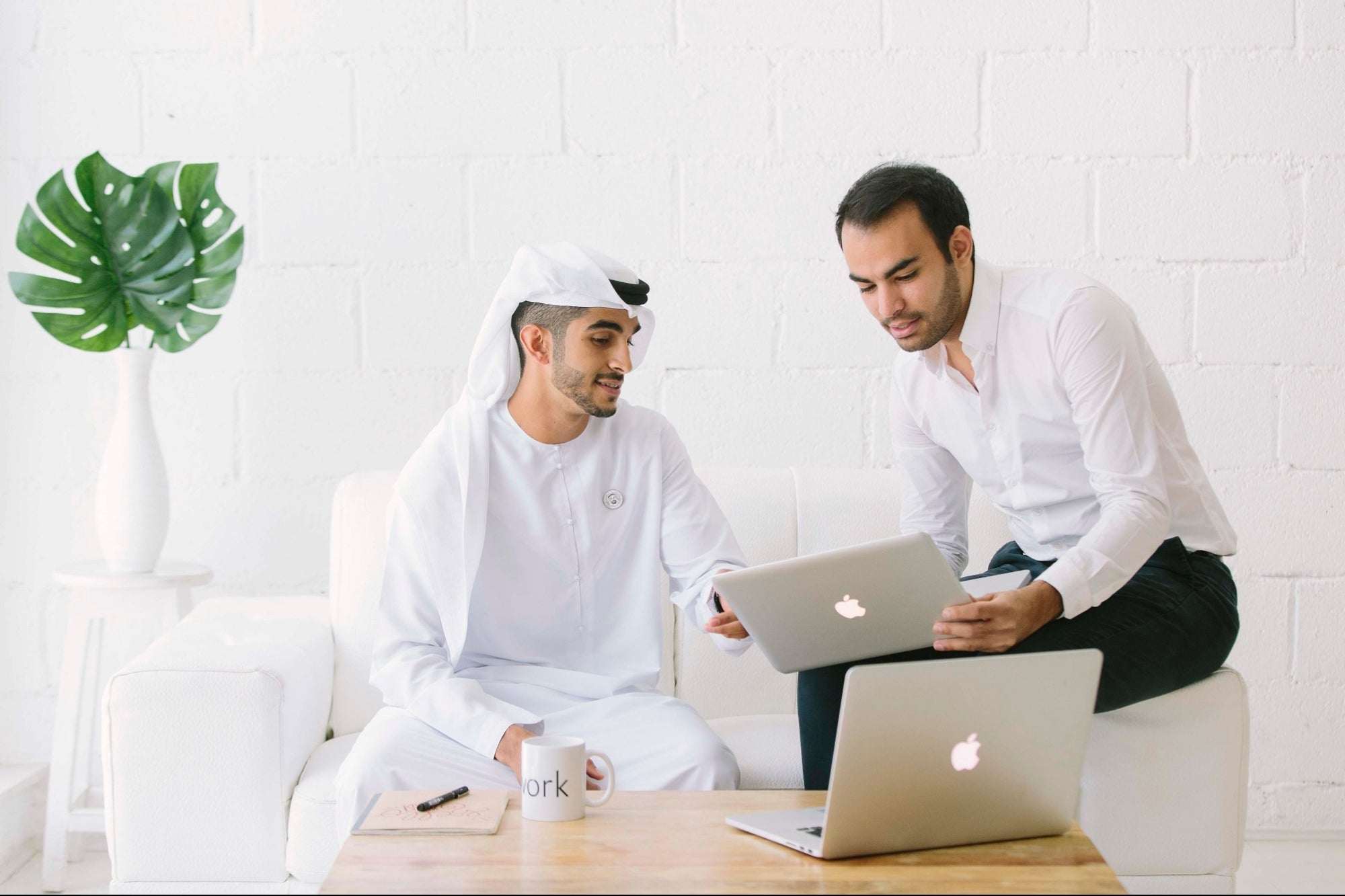Emiratisation rule, a strategic cornerstone meticulously crafted by the visionary UAE government. Emerges as a beacon of foresight in elevating the representation of UAE nationals within the dynamic tapestry of the private sector. This multifaceted initiative not only mirrors the intricate threads of the nation’s economic diversification ambitions. But also underscores the paramount importance of cultivating indigenous talent reservoirs and nurturing a culture steeped in self-sufficiency.
In this article we embark on a journey through the labyrinthine corridors of Emiratisation ruls, where the intricate dance of regulations awaits businesses and employees. Beckoning them to navigate with finesse to ensure seamless compliance and seize the myriad opportunities unfurled by this transformative program.
What are Emiratisation Rule?

Amidst the transformative shift in emiratisation rule, private enterprises with 20 to 49 employees are now mandated to onboard. At least one UAE national in 2024, followed by an additional recruit in 2025. These escalating benchmarks epitomize a strategic push to amplify Emirati representation in skilled positions across the workforce.
Delving deeper, the repercussions for non-compliance with these stringent Emiratisation mandates are severe. To illustrate, initial violations will incur a substantial fine of AED 100,000, with repeated breaches escalating the penalty to AED 300,000 for a second transgression.
Conversely, persistent non-adherence will trigger a heightened penalty of AED 500,000, coupled. With potential ramifications such as work permit application suspensions and potential reclassification to a lower operational tier.
Moreover, new emiratisation rule in uae are intricately linked to company size and the number of skilled workers employed. For instance, enterprises with 0-50 skilled workers must integrate at least one Emirati employee into their workforce.
Alternatively, as the cadre of skilled workers expands, so do the Emirati employment requisites: companies. Companies with 51-100 skilled workers must actively engage a minimum of two UAE nationals, while those with 101-150 skilled workers are required to enlist at least three Emiratis.
Likewise, for larger corporations boasting over 151 skilled workers, the mandate stipulates one Emirati employee for every additional cohort of 50 or fewer workers.
In conclusion, these novel emiratisation rule in Dubai directives unveiled under the Nafis program epitomize a concerted governmental. Endeavor to fortify Emirati involvement in the private sector workforce.
Ultimately, adherence to these regulations is paramount for enterprises seeking to circumvent substantial financial penalties. Also, potential operational disruptions in an era marked by dynamic regulatory shifts and heightened compliance imperatives.
Objectives of Emiratisation Programs
The intricate and multifaceted objectives of Emiratisation in UAE programs intricately interlace a complex web of strategic imperatives. Aimed at fundamentally reshaping the complex tapestry of the employment landscape in the UAE.
- Primarily, these visionary programs are meticulously crafted to exponentially amplify and proliferate job opportunities for UAE nationals. Through the meticulous implementation of stringent quotas that unequivocally prioritize and elevate their seamless integration into the fabric of both the public and private sectors.
- Furthermore, these collective objectives seamlessly converge in a harmonious symphony to deftly forge a profoundly inclusive, exquisitely diverse. Also, dynamically pulsating labor market that resonates with resounding clarity with the overarching aspirations, ambitions, and visionary goals of the UAE.
- In essence, Emiratisation in Dubai programs stand as towering bastions of transformative change that serve as potent catalysts for nurturing, cultivating. Also, fostering an unassailable sense of national identity while decisively curbing unemployment rates among Emiratis with unwavering resolve.
- These visionary programs serve as veritable crucibles for fostering a climate of sustainable prosperity that propels the nation towards unparalleled heights of enduring success. Also, resilience, and unwavering excellence in an ever-evolving global landscape fraught. With challenges yet brimming with boundless opportunities for growth and advancement.
Key Sectors and Roles Targeted for Emiratisation
The Emiratisation policies in the UAE have meticulously focused on a select cadre of strategic sectors and roles that are deemed paramount for the nation’s economic development trajectory.
Foremost among these targeted industries are the dynamic realms of banking and finance, the burgeoning healthcare landscape. The technologically-driven telecommunications sphere, the pivotal human resources domain, and the ever-evolving hospitality sector.
Authorities have meticulously identified and prioritized these industries as the key arenas where Emiratisation efforts must be fervently concentrated and amplified.
Furthermore, the Emiratisation policies have laser-focused their attention on elevating the employment of Emiratis. Within the realm of skilled jobs that demand at least a high school certificate or higher, with a minimum monthly salary threshold of AED 4,000.
Delving deeper, the specific roles that have been meticulously earmarked for Emiratisation include the esteemed ranks of executives, the visionary legislators. The highly-skilled professionals in technical, scientific, and human fields. As well as the astute business managers who helm the strategic operations of private sector entities.
Moreover, the search results have unveiled a tapestry of multifaceted initiatives, stringent regulations, and strategic incentives. That the UAE government has meticulously implemented to drive and propel the Emiratisation agenda across these targeted sectors and job categories within the private sector landscape.
This concerted and resolute effort aims to decisively diminish the reliance on expatriate labor while exponentially amplifying and elevating the participation of UAE nationals as the driving force behind the private sector’s growth and prosperity.
In essence, the Emiratisation strategy in the UAE is a profoundly intricate and multifaceted approach that strategically. Also, surgically targets specific industries and job functions that are deemed paramount for the nation’s long-term economic goals and priorities.
Emiratisation Rule for Businesses in the UAE
The Emiratisation rule for businesses in the UAE intricately interlace a complex web of regulations. Also, initiatives strategically architected to elevate the participation of UAE nationals within the private sector workforce.
At their core, these rules are meticulously designed to furnish Emirati citizens with enriched job prospects and avenues for career advancement. Within their homeland, thereby diminishing dependence on foreign labor and propelling economic development to new heights.
Embarking on this transformative journey, private sector entities in the UAE find themselves mandated to annually hire a minimum percentage of Emirati employees. Government-set quotas are meticulously established to ensure steadfast compliance.
The repercussions of falling short of these Emiratisation targets loom large. With substantial fines and penalties awaiting those who veer off the compliance path, with consequences intensifying for recurrent violations.
Moreover, as the dynamic landscape of Emiratisation unfolds, smaller companies with 20 to 49 employees are now enveloped within its ambit. They must onboard at least one Emirati by 2024 and two by 2025.
Additionally, the sectors earmarked for Emiratisation span a diverse spectrum encompassing information. Also, communications, financial activities, real estate, professional services, education, healthcare, construction, transportation, and hospitality among others.
Delving into the intricate tapestry of these regulations, skilled workers are meticulously delineated as those occupying managerial roles. Technical and scientific professions, writing professionals, and service occupations among others.
In essence, the Emiratisation rule for businesses in the UAE stand as formidable pillars aimed at catalyzing the employment of UAE nationals in pivotal sectors of the economy. These regulations not only sculpt the labor market terrain. But also serve as linchpins in steering the nation towards a future defined by sustainable economic growth and holistic development.
Mandatory Emiratisation Rates
The mandatory Emiratisation rates in the UAE have been meticulously calibrated to steadily ascend. With stringent targets and punitive penalties for non-compliance meticulously woven into the fabric of this transformative initiative.
- Starting with the smaller enterprises, companies with 20-49 employees must now onboard at least one Emirati by the end of 2024. Additionally, followed by the addition of yet another Emirati recruit in the subsequent year.
- Transitioning to the realm of larger companies with 50 or more employees, these entities find themselves subject to a more rigorous Emiratisation mandate. Moreover, they are now required to achieve a 2% growth in Emiratisation within their skilled job roles on an annual basis. With the ultimate aim of attaining a minimum incremental rate of 10% by the year 2026.
- The consequences for failing to meet these meticulously crafted targets loom large, with fines commencing at a staggering AED 96,000 for the initial violation. Only to escalate exponentially for any subsequent transgressions.
Compliance Requirements and Reporting Procedures
Delving into the intricate tapestry of compliance requirements, companies with 50 or more employees find themselves mandated to meticulously orchestrate a steady. Also, unwavering increase in their Emirati workforce, with a resolute directive to achieve a minimum 2% growth on an annual basis.
- In stark contrast, companies with employee headcounts ranging from 20 to 49 are compelled to onboard. At least one Emirati by the culmination of 2024, followed by the addition of yet another Emirati recruit in the subsequent year.
- Expanding upon these stringent compliance mandates, Emirati employees must meet exacting standards, necessitating the possession of a valid work permit. Registration with an approved pension fund, and seamless integration into the Wages Protection System.
- Furthermore, companies must meticulously categorize their employees into distinct skill levels. A strategic imperative that serves to meticulously calibrate and align the Emiratisation targets.
- Companies must regularly and diligently report their Emiratisation progress, delving into the intricate realm of reporting procedures. Also, compliance status to the esteemed Ministry of Human Resources and Emiratisation (MOHRE).
- This governmental entity assumes the mantle of vigilant oversight, meticulously monitoring and tracking the Emiratisation rates of companies. Through the work permit system and other comprehensive reporting mechanisms.
- The consequences for non-compliance loom large, with companies facing the prospect of e-monitoring and potential penalties. Including the suspension of work permit issuance and renewals.
- Moreover, the specter of repeated violations, spanning two consecutive years, can trigger a punitive reclassification and downgrading of the company’s operational tier by the MOHRE.
- The regulations impose stringent penalties on companies that dare to provide false information or data. The companies face fines in accordance with the applicable regulations.
Benefits and Incentives for Hiring Emirati Nationals
The intricate and meticulously crafted array of benefits and incentives meticulously orchestrated by the UAE government. To catalyze the hiring of Emirati nationals forms a complex and dynamic framework aimed at propelling local talent acquisition and igniting economic growth.
- At its very essence, these incentives span a diverse spectrum, encompassing financial subsidies, reduced visa fees. Exclusive access to coveted government contracts, and alluring discounts on labor permits meticulously tailored. To entice and engage private sector entities in the Emiratisation drive.
- Transitioning into the realm of support services, the government extends a robust arm of assistance to Emirati job seekers through a comprehensive suite of offerings. Such as bespoke job placement aid, personalized career counseling sessions, and hands-on guidance with intricate job applications.
- This intricate support framework intricately weaves to streamline the seamless integration of Emiratis into the dynamic tapestry of the job market landscape. Fostering their swift entry and upward trajectory within diverse industries.
- Moreover, by strategically deploying these multifaceted incentives and fortifying support services. The UAE embarks on a transformative journey not only to incentivize private sector companies to embrace Emirati talent. But also, to propel them towards active participation in the overarching Emiratisation imperatives.
- This resolute effort aims to sculpt a vibrant, diverse, and sustainable local workforce. That harmonizes seamlessly with the nation’s core values of inclusivity and economic resilience.
- In essence, the strategic orchestration of these compelling benefits and incentives serves as a beacon for businesses. Illuminating the path towards growth, innovation, and enhanced performance through the strategic recruitment and integration of Emirati nationals.
- By aligning with the values of diversity and fostering a culture of local talent empowerment, companies stand poised to reap substantial rewards. While contributing meaningfully to the UAE’s visionary quest for a prosperous, inclusive future.
Penalties for Non-Compliance
- Civil penalties, a labyrinthine landscape unto themselves, present a display of repercussions ranging from $10,000 to $500,000 per violation. Their severity dictated by the enigmatic dance of legal statutes.
- Within this tumultuous realm lie the ominous whispers of asset seizures, the ominous specter of revoked exporting privileges.
- The suspension of critical “exporting” privileges, a temporal void lasting anywhere from 30 to 90 days. Threatens to plunge educational institutions and organizations into disarray.
- Traversing this labyrinthine expanse demands unwavering focus and an unyielding commitment to regulatory adherence. Non-compliance penalties pulse through time in quarterly installments, marking each beat with a reminder of past transgressions.
- The severity of these penalties ebbs and flows like a tempestuous tide, dictated by the gravity of violations committed. The industry’s whims, and the intricate tapestry of regulations breached.
Conclusion

In the intricate tapestry of Emiratisation regulations within the UAE, a landscape emerges where quotas and integration programs intertwine to shape the workforce.
Businesses teeter on the edge of penalties, a precipice where fines starting at AED 100,000 loom ominously, escalating to a staggering AED 500,000 for recurrent transgressions. Compliance becomes the cornerstone for nurturing sustainable growth and fostering economic development in this enigmatic realm.
Navigating this labyrinth demands a deep understanding and unwavering adherence to Emiratisation guidelines, a path fraught with complexities for both businesses and employees. By embracing these mandates, organizations not only sidestep punitive measures. But also sculpt a mosaic of diversity that mirrors the vibrant talent reservoir of the UAE.
Embracing this Emiratisation rule transcends mere legal obligation. It becomes a strategic imperative for enterprises seeking to flourish amidst the ever-shifting tides of the UAE’s economic landscape. Contact us to learn more.





